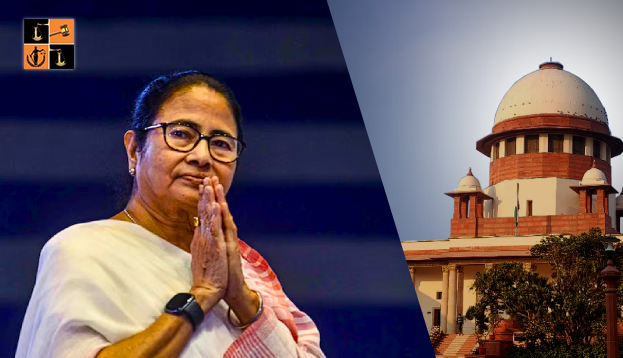The Supreme Court on Wednesday firmly stated that it would not permit the courtroom to become a ground for advancing political arguments, as it heard a suit moved by West Bengal against the central government’s directive allowing the Central Bureau of Investigation (CBI) to conduct investigations in the state.
Asserting that the court is concerned only with legal principles and not political manoeuvering, a bench of justices Bhushan R Gavai and Sandeep Mehta asked the counsel for the state as well as the central government to refrain from making political arguments.
“We are only deciding legal issues in this matter. We won’t permit either of the parties to raise political issues or arguments. We don’t want this forum to become a stage for political battles. We will never allow this,” stressed the bench even as it reserved its decision on the Centre’s objection to the maintainability of the state’s suit.
Solicitor general Tushar Mehta represented the Centre in the matter while senior counsel Kapil Sibal and Abhishek Manu Singhvi appeared for the Mamata Banerjee government.
The second day of the hearing in the suit filed by the state in 2021 commenced with SG Mehta raising objections to Sibal’s previous statement regarding subsequent involvement of the Enforcement Directorate (ED) in cases whenever CBI entered the state. “There is a case where ₹50 crore was recovered from a sitting minister of the state. Perhaps, this is why my learned friend (Sibal) made a political statement about ED on the last date,” Mehta contended. The SG was apparently referring to the alleged recovery of ₹50 crore by ED in 2022 from West Bengal minister Partha Chatterjee, who was arrested in connection with financial irregularities in teachers’ recruitment in the state.
While Sibal said that he does not wish to respond to SG’s statements, the bench intervened to emphasise the importance of objectivity of the judicial process. “We are on a neat question of law...We will hear both sides only on law. We will not permit any political argument in this court.”
The West Bengal government, in its suit filed through advocate Astha Sharma, contends that the actions of the central government and the involvement of CBI in state matters are an overreach of power and infringes upon state sovereignty. Filed in August 2021, the state’s suit underlined that the Trinamool Congress government had in November 2018 withdrawn general consent for CBI to carry out a probe in the territory of the state, and that registration of 12 cases by the central agency despite this was an instance of “constitutional overreach” by the Centre.
Responding, SG Mehta argued last week that that CBI, which is not listed as a defendant by the state in its suit, operates with a degree of independence, thus questioning the causal connection between the Union’s actions and the grievances cited by West Bengal.
“CBI is not ‘Union of India’ nor is controlled by the latter. CBI is an independent legal person and has a separate legal identity outside the Union of India,” Mehta argued on May 2, accusing the West Bengal government of “suppression of facts” and “misleading the court” and demanding dismissal of the suit for not having a “cause of action” against the central government when all FIRs were filed by an independent agency .
Rebutting the SG’s submissions, Sibal on Wednesday banked on Section 4 of the Delhi Special Police Establishment (DSPE) Act, under which the central government retains superintendence and control over CBI. This includes authority over classifying offences and deciding the geographic areas where the agency can operate.
“The source of power for CBI to act is the central government. CBI is only an investigating agency. It is for the Union to specify offences that CBI can investigate as well as the latter’s jurisdiction and both these subjects are decided by the central government through notifications. How can the central government say it has nothing to do with CBI,” Sibal asked.
The senior counsel argued that the DSPE provision clearly demonstrates the Centre’s overarching control and contradicts its assertion of limited involvement in the agency’s deployment in state matters. He added that such control underscores the need for the Centre to respect state boundaries and protocols before permitting CBI interventions in states where consent stands withdrawn.
“The act of CBI to enter my jurisdiction is unconstitutional and it’s at the instance of the central government which controls the agency under Section 4...the issue here is of encroachment of jurisdiction; encroachment of legal rights and questions of federalism,” contended Sibal, emphasising the state has a clear cause of action against the Centre.
Responding, Mehta reiterated that CBI cannot be called a “police force of the central government” and that the latter had no control over functional autonomy of the agency.
To this, the bench asked Mehta a few questions regarding Sections 5 of DSPE Act that authorises the Centre to extend the powers and jurisdiction of CBI to different territories members for the investigation of any offences, and reserved its judgment on the issue of maintainability of the suit.
(Only the headline and picture of this report may have been reworked by the LatestLaws staff; the rest of the content is auto-generated from a syndicated feed.)
Source Link
Picture Source :


























